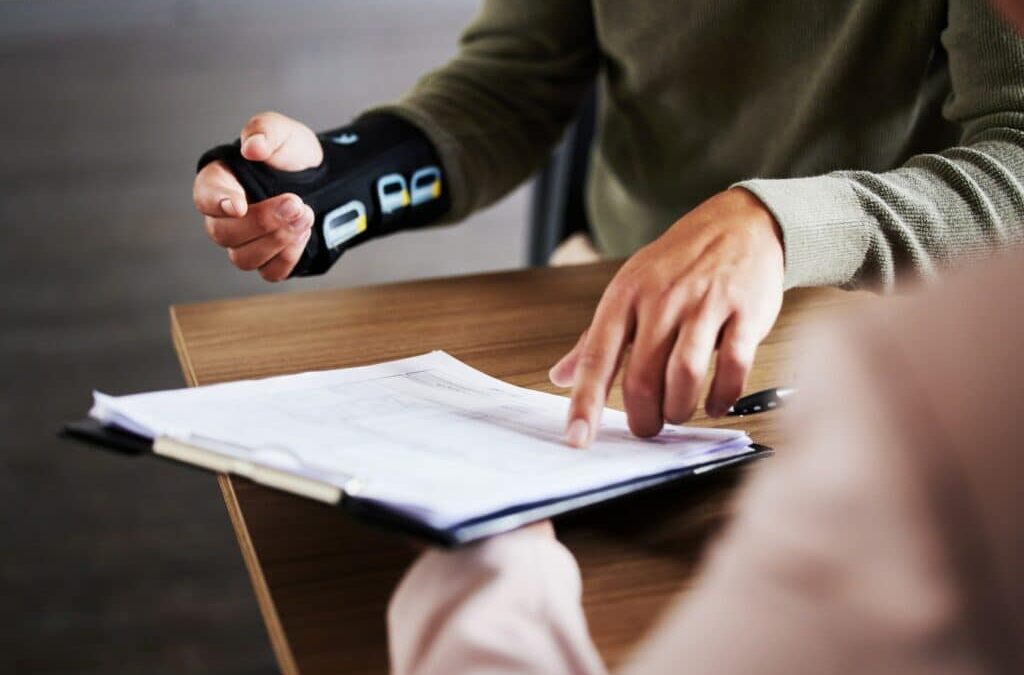The responsibility of proving fault in a personal injury case falls on the shoulders of the plaintiff. It is essential for the injured party to demonstrate that the defendant’s negligent actions directly led to their injury. Key pieces of evidence pivotal in substantiating this claim include medical documentation, accident and police reports, testimony from witnesses, pictures and videos from cellphones, surveillance footage, tangible evidence, and other forms of proof.
Personal injury attorneys meticulously investigate accidents to gain as much evidence as possible to establish negligence. This process is crucial in securing the rightful compensation for their clients.
Establishing Negligence in Personal Injury Cases
To succeed in a personal injury lawsuit, the plaintiff must convincingly establish four critical elements:
- The existence of a duty of care owed by the defendant.
- A breach of this duty by the defendant.
- The plaintiff’s injury directly resulted from this breach.
- The damages claimed are a direct outcome of the breach.
For a plaintiff to be awarded in court, they must demonstrate these four elements by a “greater weight of the evidence,” meaning it must be more likely than not. Therefore, if the jury believes that it is more likely than not that these elements hold true, the decision should be in favor of the plaintiff.
This standard, greater weight of the evidence, is a significantly lesser burden compared too the “beyond a reasonable doubt” standard used in criminal law. The beyond a reasonable doubt is one of the highest legal standards in Florida. Under criminal law, if there’s any reasonable doubt regarding the guilt of the accused, they should be acquitted. This highlights a fundamental distinction between the burden of proof required in criminal versus civil cases.
Establishing Duty of Care
Establishing a duty of care in numerous personal injury cases is often straightforward, as duties are broad. Fundamentally, a duty of care constitutes a legal obligation to prevent harm to others. This duty encompasses both actions and omissions. For instance, engaging in speeding constitutes an action that breaches the duty of care, whereas neglecting to apply brakes represents an omission that also breaches this duty.
Several scenarios where the duty of care is applicable include:
Driving
It is presumed that all drivers owe a duty of care to other road users and pedestrians.
Premises Liability
Property owners, whether of residential or commercial properties, are obligated to ensure their premises are devoid of any safety hazards to protect those invited on their property.
Assault and Battery
There is a general duty for individuals to refrain from causing harm to others physically.
Medical Practice
Healthcare professionals are required to adhere to established medical standards in caring for patients. Deviating from these standards and causing harm can lead to liability.
This refined explanation highlights the importance and scope of the duty of care in safeguarding individuals across various contexts.
Establishing Breach of Duty
The initial step in the journey toward proving negligence starts with establishing a duty of care.
Demonstrating Causation
Beyond proving a breach, plaintiffs must link that breach directly to their injury. In some instances, causation is clear-cut, such as when a driver’s head-on collision results in significant injuries to another.
However, other situations demand more effort to prove causation. A departure from medical standards during surgery, for example, does not inherently harm the patient. A negative outcome might be unrelated to any breach. In medical malpractice cases, plaintiffs must explicitly connect any deviation from standards to their injuries.
Proving Damages
Under Florida personal injury law, plaintiffs can claim both economic and non-economic damages. Economic damages cover tangible losses like medical expenses and lost wages, while non-economic damages include pain and suffering, emotional distress, and diminished quality of life.
Victims must demonstrate that their losses directly result from the defendant’s negligence to secure these damages.
Successfully establishing these four elements enables plaintiffs to pursue justice and compensation for their injuries.
Contact ECD Law Firm Today to Get Your Complimentary Personal Injury Consultation
Attorney Warren Chin and the experienced personal injury attorneys at ECD Law Firm have handled numerous cases involving car and truck accidents, slip-and-fall incidents, product liability, and other personal injury claims in Sarasota County and surrounding areas. Our team has the resources, experience, and dedication needed to fight for your rights and secure the compensation you deserve. Call 941-366-8888 or schedule a meeting with an attorney today using our online form.

